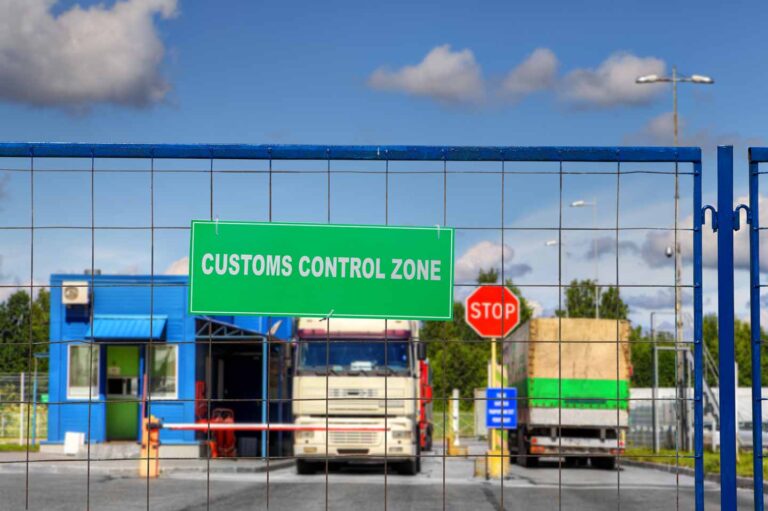In response to the climate crisis and the alarming global loss of forests, the European Union has adopted the EU Deforestation Regulation — Regulation (EU) 2023/1115 (EUDR).
Its objective is to limit the environmental impact of EU consumption by restricting products linked to deforestation and forest degradation. Under the EUDR, companies importing or placing certain deforestation-risk products on the EU market must comply with strict due diligence obligations to ensure their supply chains are deforestation-free.
In this guide, we explain in detail what the due diligence statement is, which businesses are affected, the EUDR compliance steps to follow, and the potential impacts for European companies and their international partners.
What is the Due Diligence Statement (DDS)?
Due diligence refers to a preventive compliance process requiring companies to demonstrate that the products they import or sell in the EU do not contribute to deforestation or forest degradation.
This process includes:
- Collecting detailed supply chain information
- Conducting a thorough risk assessment
- Ensuring full traceability from production to the European market
Products covered by Regulation (EU) 2023/1115 (EUDR)
The EUDR targets products considered high-risk for deforestation, including both raw materials and their derivatives:
| Product | Examples | Derivatives |
|---|---|---|
| Timber/Wood | Sawn wood, panels | Furniture, paper |
| Soy | Seeds, oil | Animal feed |
| Cocoa | Beans, paste | Chocolate |
| Coffee | Beans, roasted | Capsules, drinks |
| Palm oil | Crude oil | Processed food, cosmetics |
| Rubber | Natural latex | Tyres, shoe soles |
| Cattle/Beef | Meat, leather | Leather goods |
⚠️ Only products produced after 31 December 2020 are subject to these due diligence rules.
What are the goals of the EUDR?
The regulation serves several environmental and economic purposes:
- Preserve primary forests and ecosystems
- Reduce carbon emissions caused by deforestation
- Improve supply chain transparency
- Combat imported deforestation
- Strengthen corporate accountability in agri-food and forestry sectors
Key dates to remember
| Date | Event |
|---|---|
| 31 December 2020 | Production cut-off for products under the regulation |
| 29 June 2023 | Official publication in the EU Official Journal |
| 30 December 2026 | Regulation enters into force for most companies |
| 30 June 2027 | Application for micro-enterprises and some SMEs |
Which companies must comply?
The regulation applies to two main categories of businesses:
| Category | Definition | Obligations |
|---|---|---|
| Operators | Importers, exporters or manufacturers placing products on the market | Full due diligence |
| Traders | Entities distributing products downstream | Retain product data |
SMEs are also impacted, although certain obligations may be proportionally adjusted.
The three steps of Due Diligence
1. Information gathering
Operators must collect precise data on:
- Product type
- Country of production
- Geolocation of agricultural/forestry plots
- Volume, supplier identity, and customs documentation
2. Risk assessment
Companies must evaluate:
- Deforestation risk of the country of origin
- Supplier compliance history
- Supply chain complexity
The European Commission has introduced a risk classification system:
| Risk level | Required measures |
|---|---|
| Low | Simplified due diligence |
| Standard | Full due diligence |
| High | Enhanced checks, including field verification |
Countries classified as Low Risk (Excerpt)
Examples: France, Germany, Canada, Japan, South Africa, Australia, Portugal, Netherlands, etc.
[Full list available above]
Countries classified as High Risk
- Belarus
- North Korea
- Myanmar
- Russia
Import of timber and derivatives from these countries is completely banned.
Standard Risk countries (Examples)
- Brazil
- Cameroon
- DR Congo
- Côte d’Ivoire
These countries require full compliance with due diligence procedures.
The classification is subject to change based on ongoing EU-country dialogue.
3. Risk Mitigation
If risk is identified, companies must take corrective actions:
- Change supplier
- Request third-party audits or certifications
- Suspend the product from the EU market
Submitting Your Due Diligence Declaration
From 30 December 2025, companies must submit their due diligence statements through the EU’s TRACES-NTplatform.
Each submission must include:
- Operator details
- Product and traceability data
- Risk assessment results
- Mitigation actions, if applicable
The system will generate a unique identifier for each declaration, ensuring customs transparency and traceability.
Penalties for non-compliance
EU Member States are responsible for enforcing the regulation. Possible sanctions include:
- Fines up to 4% of annual turnover
- Confiscation of goods
- Temporary import bans
- Random inspections by national authorities
What this means for European companies
Opportunities
- Promote sustainable practices
- Strengthen supply chain visibility
- Preferential market access through compliance
Challenges
- Complex geolocation data requirements
- Increased administrative workload
- Staff training and supply chain restructuring
Best practices for early compliance
To prepare effectively, companies should:
- Map their supply chains
- Work with certified suppliers (e.g., FSC, RSPO, Rainforest Alliance)
- Establish document management systems
- Educate procurement and compliance teams
Early adoption can offer a competitive advantage on the European market.
Example: Standard Due Diligence Statement (DDS)
| Element | Example |
|---|---|
| Product | Cocoa beans |
| Country of origin | Côte d’Ivoire |
| Geolocation | Latitude/Longitude of plantation |
| Production date | February 2024 |
| Volume | 12 tonnes |
| Supplier | Cocoa Ivoire Cooperative |
| Certification | Rainforest Alliance |
| Risk level | Standard |
| Mitigation measures | Supplier audit, third-party certification |
Key sectors affected
Timber
Requires geolocation and certification (FSC, PEFC). Focus on traceability for wood-based products like furniture.
Agri-food (Coffee, Cocoa, Palm Oil)
Must prove raw materials are not linked to deforested areas. Certified cooperatives are essential.
Leather and Beef
Must trace cattle from pasture to slaughter. Long supply chains may pose logistical challenges.
The role of certifications
While not mandatory, certifications help demonstrate risk mitigation:
| Certification | Sector | Benefit |
|---|---|---|
| FSC / PEFC | Timber | Traceable, sustainable sourcing |
| RSPO | Palm Oil | Responsible production |
| Rainforest Alliance | Coffee/Cocoa | Social & environmental standards |
Companies can combine certifications, audits, and geodata to ensure compliance.
Regulation (EU) 2023/1115: A turning point for forest protection
The EUDR introduces a new compliance landscape for companies placing forest-risk products on the EU market.
The due diligence statement becomes a central environmental compliance tool, encouraging sustainable supply chain practices.
Businesses must act now to avoid penalties and remain competitive.
Preparing systems, training staff, and building resilient supplier relationships are essential for success.
ASD Group supports your EUDR compliance
In response to Regulation (EU) 2023/1115, ASD Group helps companies meet their due diligence obligations for imports and exports involving forest-risk products.
Our experts:
- Assist with TRACES-NT declarations
- Ensure customs compliance
- Reduce risk of penalties and delays
📞 Contact our team today to anticipate your obligations and secure your supply chain.
Explore all our customs compliance solutions to stay ahead of EUDR requirements.


